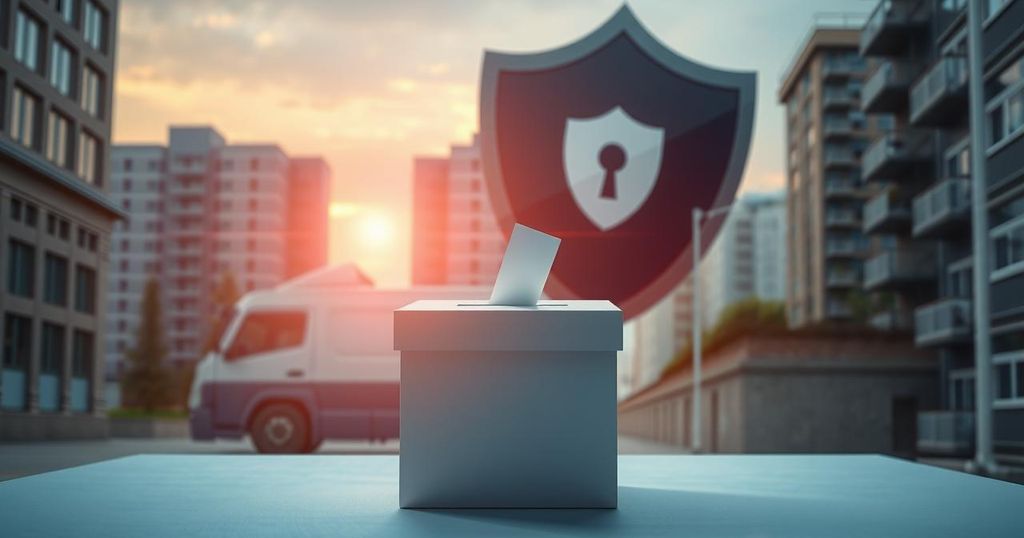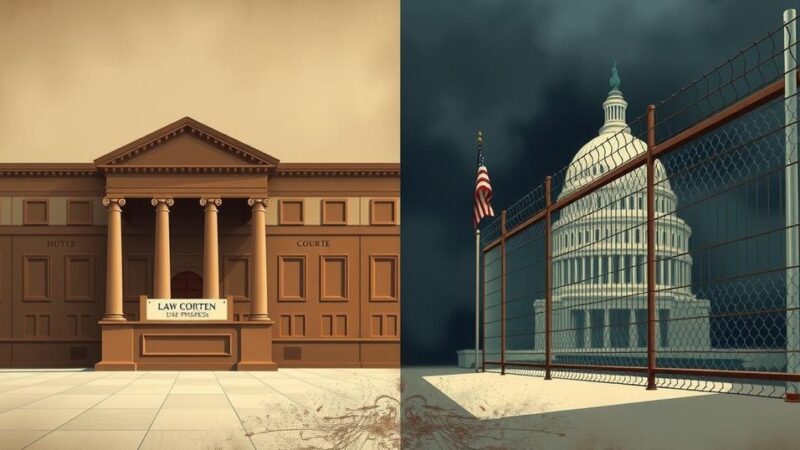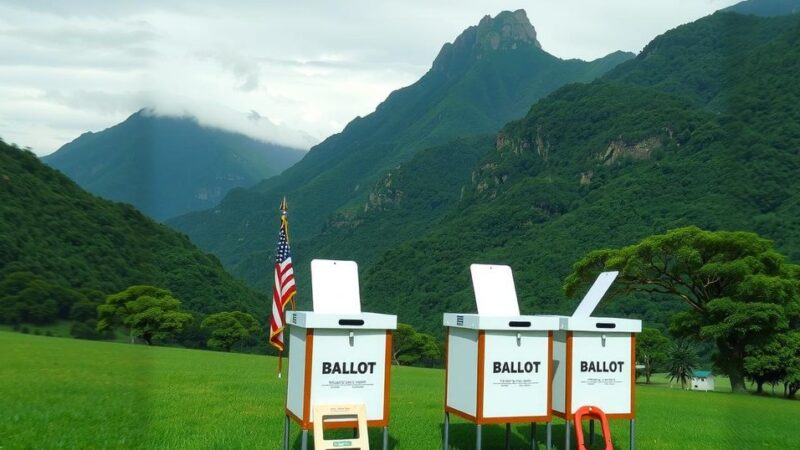Ecuador votes in a presidential election marked by security issues and economic struggles. Incumbent President Daniel Noboa faces off against challenger Luisa Gonzalez. Voting began at 7:00 AM local time on Sunday. Noboa emphasizes his crime-fighting efforts, while Gonzalez calls for social interventions to address violent crime. The election outcome will hinge on voters’ concerns over safety and economic stability.
Ecuadorians are heading to the polls to vote for their next president amid pressing concerns over a security crisis and a struggling economy. Currently, incumbent President Daniel Noboa, aiming for re-election, faces significant competition from left-wing rival Luisa Gonzalez. Voting commenced at 7:00 AM local time on Sunday, with polls closing at 10:00 PM.
The political climate is fiercely competitive, with a total of fifteen candidates contesting the presidency. Daniel Noboa, a 37-year-old billionaire’s son elected just 14 months earlier, is viewed as the frontrunner. Luisa Gonzalez, a 47-year-old legislator and protégé of former President Rafael Correa, is positioned as his primary challenger.
Noboa’s tough stance on crime, characterized by a military presence on the streets and in prisons, is credited with a notable reduction in violent deaths and gang leadership arrests. He urged voters to continue the change he has initiated, stating at a recent rally, “Today, Ecuador has changed and wants to keep changing.” However, opponents argue more comprehensive measures against drug-related crime are essential.
Gonzalez asserts that her approach will blend military and police actions with social reforms in the most affected areas. She emphasizes the connection between social justice and violence control, stating, “We can’t talk about controlling violence without thinking of social justice.” This perspective aims to inspire collective responsibility among citizens as they face ongoing violence due to cartel conflicts.
Ecuador grapples with its most severe crisis in decades, with skyrocketing crime rates driven by territorial disputes between competing gangs. Noboa has empowered the military significantly, leading to various abuses, raising concerns among human rights organizations. Yet, his assertive approach continues to garner support amid escalating violence.
Currently, the economy is strained, with analysts forecasting a recession following its contraction the previous year. In response to fiscal challenges, Noboa has sought assistance from the International Monetary Fund (IMF), while Gonzalez has indicated openness to collaboration with the IMF, acknowledging the need for aid that does not adversely affect working families.
The upcoming presidential election in Ecuador occurs against the backdrop of a significant security crisis fueled by drug-related violence and a faltering economy. With rising homicide rates and cartel activities substantially altering the nation’s safety landscape, political candidates are compelled to address these critical issues. Incumbent President Daniel Noboa, elected just over a year ago, and his challenger, Luisa Gonzalez, are central figures in this volatile electoral climate, focusing their campaigns largely on public safety and economic recovery.
The Ecuadorian presidential election underscores the country’s urgency to address security and economic concerns. Incumbent Daniel Noboa’s militarized approach contrasts with Luisa Gonzalez’s focus on integrating social justice into crime prevention. As voters head to the polls, the outcome will significantly impact Ecuador’s strategies to combat crime and stabilize its economy.
Original Source: www.aljazeera.com






